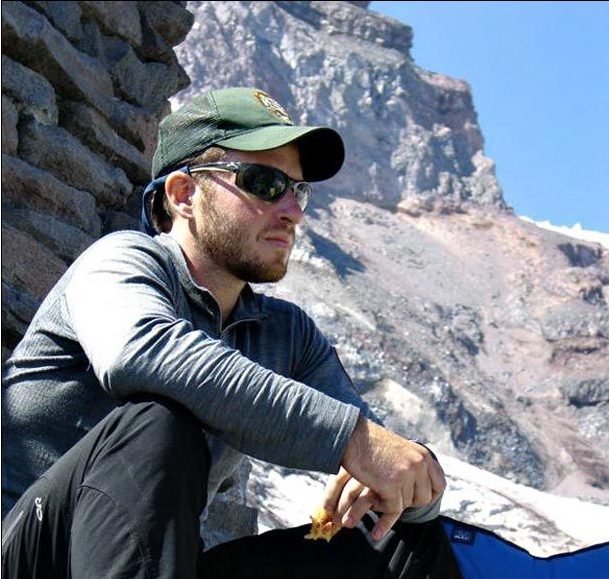By Manuel Valdes
The Associated Press
SEATTLE — Whiteout conditions on Mount Rainier National Park prevented rangers Saturday from recovering the body of a colleague who died while rescuing four injured climbers near the mountain’s peak.
Crews were hoping for a break in the weather, but conditions got worse as the day progressed, said park spokeswoman Brandi Stewart.
Crews said the forecast looked better for recovery on Sunday.
A team of four rangers who had begun climbing to the spot where climbing Ranger Nick Hall slid 2,600 feet to his death turned back to Camp Schurman.
The campsite is at the 9,500-foot level.
The rangers were going to assist with a planned recovery from a helicopter, which remains on standby until the weather allows flying conditions.
Hall, 33, died Thursday after helping four climbers from Texas who fell near the 14,411-foot mountain’s peak.
The climbers had reached the summit and were on their way down, roped together, when two women fell into a crevasse on Emmons Glacier at the 13,700-foot level.
Two men were able to stop the group, and one called for help by cellphone.
Hall had helped put three climbers into a helicopter when he fell.
The final climber, Stacy Wren, descended the mountain with rangers Friday.
Park spokeswoman Patti Wold identified the climbers as Stuart Smith, Noelle Smith, Ross Vandyke and Wren.
The three airlifted in the helicopter were taken to the Madigan Army Medical Center at the military base near Tacoma.
They were hospitalized in fair condition Friday, said spokesman Jay Ebbeson.
The climbers were bruised with possible broken bones, park spokesman Kevin Bacher said earlier.
Park investigation
Hall was several hundred feet from the mountain’s 14,411-foot summit when he fell, and the park is investigating exactly how it happened to prevent the possibility of any reoccurrence of similar falls in the future, Bacher said.
“We’re a very small team and particularly the climbing team — basically 15 people under the climbing foreman,” said Bacher, who also is a ranger.
“And they work very close together and train close together and depend on each other for their lives and become very close.”
Hall’s family both grieved and celebrated his life Friday.
Hall, a four-year veteran of the park’s climbing program, came from a family of emergency medical technicians — or EMTs — who aided soldiers in Iraq and car crash victims in his small hometown of Patten, Maine.
He was not married and had no children.
His father, Carter Hall, recalled his son as a loner when he was a child who flourished in high school through a love of the wilderness he shared with his father.
Outdoors influence
“For good and bad, it was my influence of the outdoors,” Carter Hall told The Associated Press in a call from his Maine home, his voice breaking.
The last time a climbing ranger was killed was 1995, when two rangers died after falling 1,200 feet during a glacier rescue.
Nick Hall’s family said they were proud of his involvement in mountain rescues and hoped his death will draw attention to the profession’s dangers.
Hall’s father is a volunteer firefighter and EMT in Patten, and his older brother, Aaron, served in the National Guard as an EMT in Iraq.
Aaron Hall celebrated his birthday the day his brother died on the mountain.

